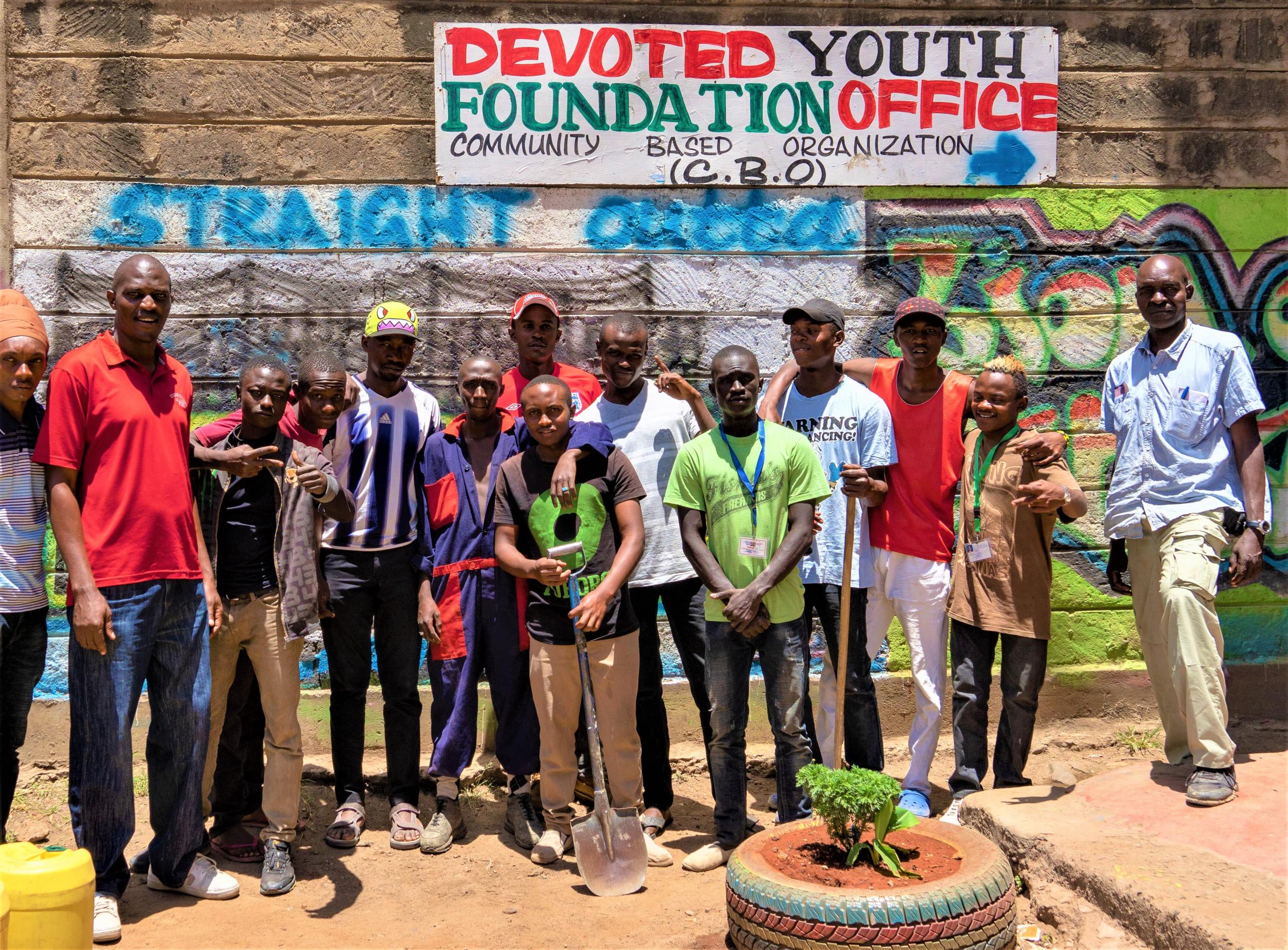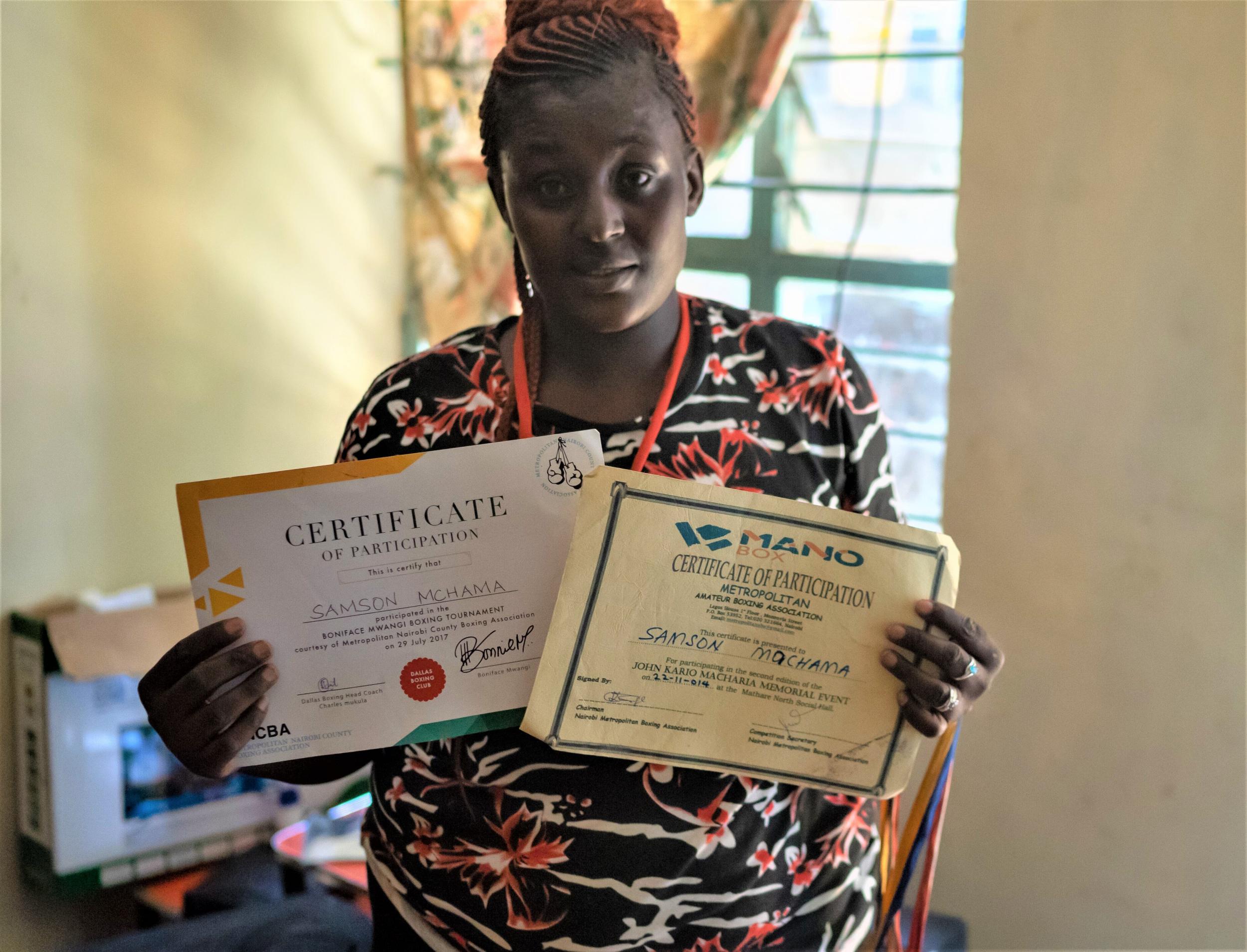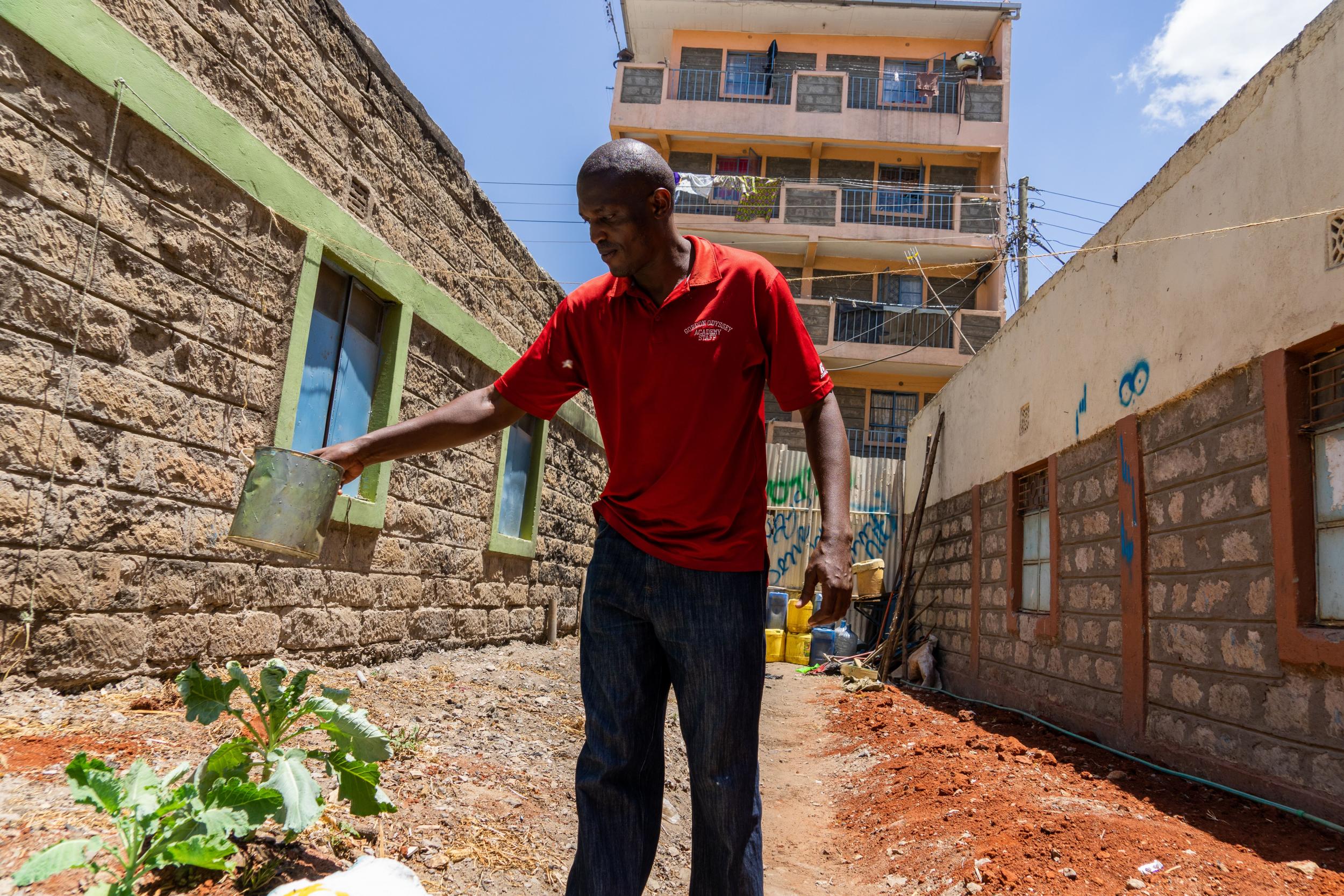The former thief on a mission to tackle Nairobi’s rampant crime: ‘I used to mug people, then I almost died’
This Kayole slum neighbourhood has given up on police, but the community is taking action to stop people turning to a life of violent crime, writes Adam Muro

Charles Owino, 33, grew up in a broken family in Kayole, a slum neighbourhood in eastern Nairobi, Kenya.
At times, he would go to school hungry, and like many young men in his situation, he turned to crime to keep himself fed.
“I used to mug people,” he tells The Independent, “then there came a time I almost died.”
Someone Owino tried to mug recognised him in the streets, and he was subjected to an attempted lynching at the hands of a mob of angry residents who felt they had to take the law into their own hands.
“My conscience told me, ‘If you don’t change now you won’t get another chance.’”
That was five years ago.
Now, Owino runs the Youth Challenge Network, an association of community-based groups that are trying to reform young men who have been lost to a life of crime, and to support them once they leave it.
Owino is a small but essential player in a nationwide push in Kenya to cut crime and reform a police force widely believed to be incompetent, corrupt, and quick to execute accused criminals.
In pictures: Kenyan police crackdown on protests
Show all 10He plays his part in Kayole, and does what he can to help former criminals prove to the community and the police that they are worthy of a second chance – before their lives are cut short.
There is a long history of mistrust between the people of Kayole and the police.
They shake residents down for bribes, profile and threaten young people who walk together in groups after dark – and kill those who get on the wrong side of the law.
No official statistics are kept on these extrajudicial killings, but according to Irungu Houghton, director of Amnesty International Kenya, the problem is rampant.
“It’s something like 150 cases a year, meaning one killed every three days,” he says.
“These people are bad, let me tell you,” Owino says.
“When they know this young man is involved in crime... the boy disappears. After some time, maybe one week, the boy is found in a mortuary – dead.”
These are the stakes for the young men Owino works with, and keeping them alive is a major motivator for him as he tries to set them straight.
Kayole is rife with crime and gangs, but when a citizen is victimised and needs the police, justice is often nowhere to be found.
Purity Muchama’s 14-year-old brother Samson was beaten to death by a man for no apparent reason.
“He came to my house and told me, ‘I killed your brother, there’s nothing you can do. If I get caught I will pay money to the police and walk away,’” Muchama, 26, says.
The man threatened her, saying that if she went to the police “she would be next”.
She decided to go anyway, and according to her, was met with ambivalence.

They asked her for a witness, knowing full well no one would probably testify against a gang.
Determined to get justice for her brother, she put her safety at risk again by speaking to local print and television reporters demanding answers.
She remembers him as a boy who had everything going for him, a talented boxer and one of the best students in his age group.
“I want to stay strong for my mother,” she says.
Months later, she is still no closer to getting justice.
In this tight-knit community, Owino knew Samson well. “He used to play with my daughter.”
“The problem is the stomach. That is why people go to crime,” Owino says, walking through the dusty streets of Kayole.
A head taller than most, he has a commanding presence in any room he enters. He has a world-weary look about him most of the time, even when he smiles.
“The attitude here is that the police cannot change.
“On the other side, the police believe that the youth will never reform,” he says, shaking his head.

But proof of the group’s impact on the area can be found in the alley its clubhouse occupies: it used to be a dump site full of rubbish, and a known hotspot for criminals and drug dealers.
Now, there are the beginnings of a vegetable garden here, full of kale and squash. The group also raises rabbits and chickens to sell.
It is member-organised and governed, and the young men who make up its ranks spend their free time cleaning up and beautifying public spaces.
It doesn’t receive any funding, but its members meet with each other frequently for support as they try to make an honest living and stay out of crime.
“Back in the days, I was a really bad person,” says Martin, 22, from the shade of the clubhouse.
“I can’t lie, most of them would see me and say, ‘This guy is just going to steal my phone.’”
Martin says that not only has the physical improvement in the area been remarkable, but little by little they are beginning to gain respect from the police.
“Now, when they see us, they even salute us these days,” he says.
Walking away, Owino chuckles.
“That one was very, very bad.”
For now, he is keeping up his end of the bargain, and can only hope the police keep theirs.
Subscribe to Independent Premium to bookmark this article
Want to bookmark your favourite articles and stories to read or reference later? Start your Independent Premium subscription today.


Join our commenting forum
Join thought-provoking conversations, follow other Independent readers and see their replies
Comments